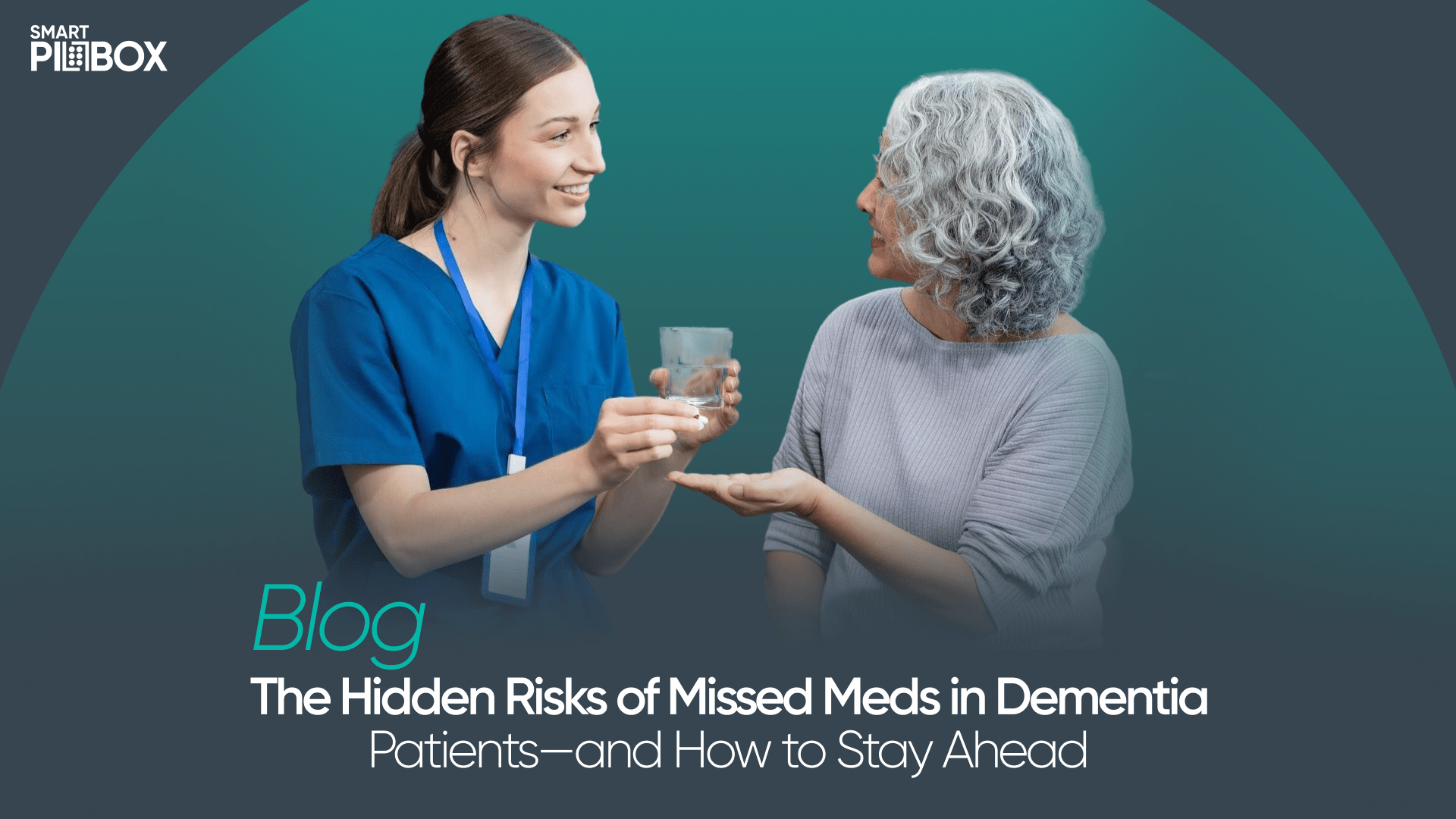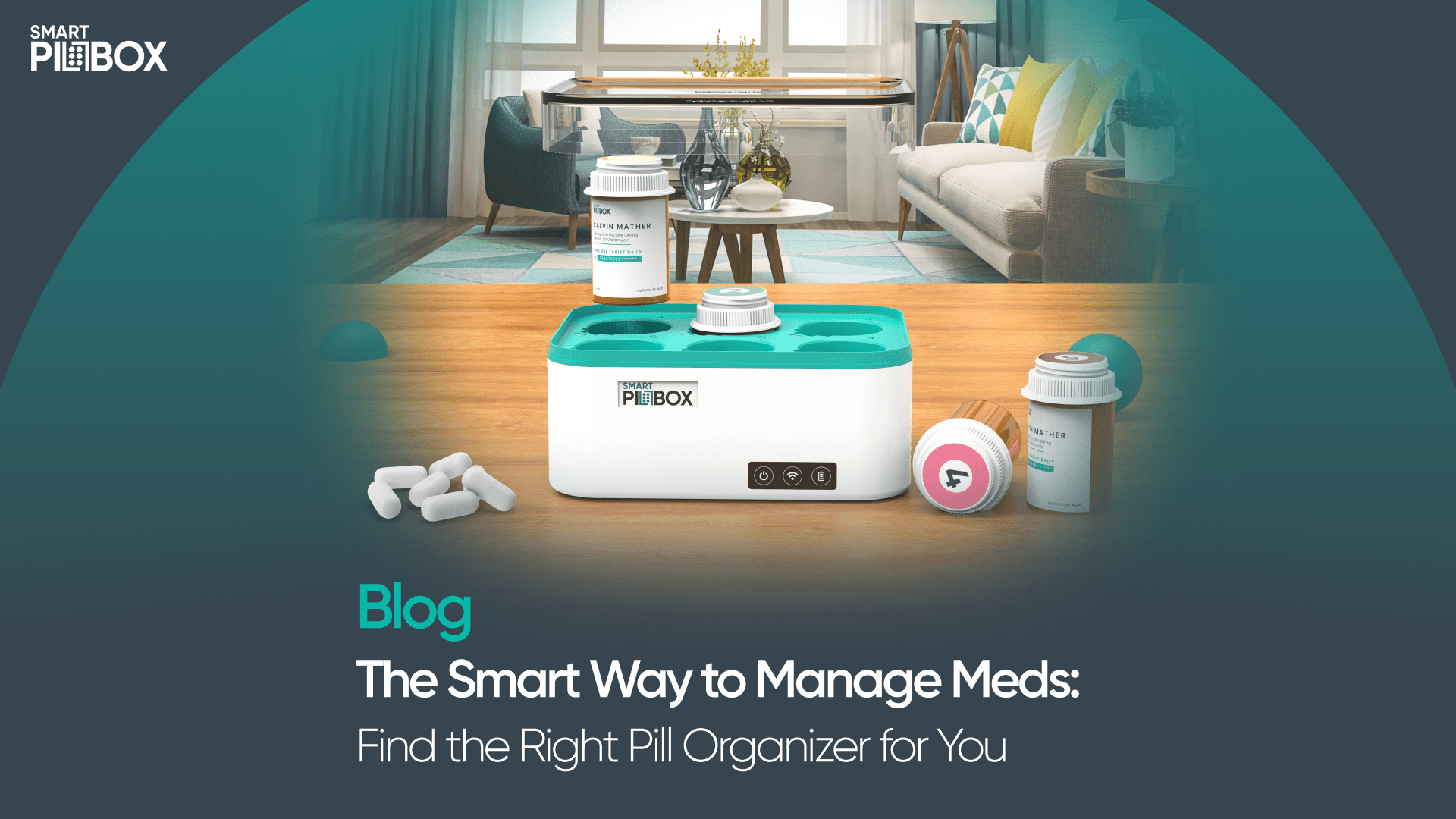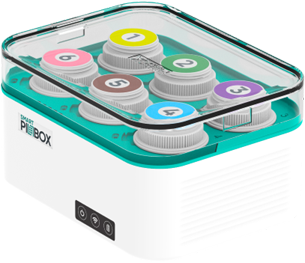The Hidden Risks of Missed Meds in Dementia Patients— and How to Stay Ahead

The human brain is the most intricate organ we know of. It stores memories, fuels emotions, drives decision-making, and shapes the very essence of who we are. But have you ever wondered what happens when the delicate processes of memory and cognition start to break down? For people living with dementia, everyday tasks like remembering to take medication can become a monumental challenge.
And when those medications are missed, the consequences go beyond just an incomplete dose — they can spiral into serious health risks, emotional strain, and increased caregiver stress.
This is not just a medical problem. It’s a deeply human one, tied to dignity, independence, and the quality of life for those facing dementia.
Understanding Dementia and Its Impact on Daily Life
Dementia is not a single disease but a group of symptoms affecting memory, thinking, and social abilities. It disrupts how a person communicates, remembers, and interacts with the world. From dementia activities that once brought joy to difficulties in dementia communication, the changes can be both subtle and profound.
As the condition progresses, living with dementia requires adjustments in routines, surroundings, and daily care. One of the most challenging parts? Managing multiple medications — often at specific times and in specific dosages.
Why Missed Medications Are So Dangerous in Dementia Care
For people without memory challenges, missing a pill might seem minor. But in dementia care, the stakes are higher:
- Disease progression: Certain medications help slow the progression of dementia-related symptoms. Skipping doses can reduce their effectiveness.
- Coexisting health issues: Many dementia patients have other chronic conditions such as diabetes or heart disease. Missed doses can trigger immediate health crises.
- Increased hospitalizations: According to the Alzheimer’s Association, medication mismanagement is one of the leading causes of preventable hospital admissions in dementia patients.
The truth is, even one missed dose can be the beginning of a chain reaction — and for caregivers, the stress of trying to prevent that is immense.
The Emotional Toll on Caregivers
Being a dementia caregiver is both a privilege and a challenge. There’s joy in moments of connection, but there’s also fatigue, worry, and a constant fear of “What if I forget?”
Missed meds are not just a medical slip — they can make caregivers feel like they’ve failed, even though the reality is that dementia care is complex and relentless. The more advanced the dementia, the harder it becomes to maintain medication schedules, especially when balancing other aspects of dementia support like daily hygiene, nutrition, and social engagement.
Communication Barriers That Make Medication Adherence Harder
Dementia communication is its own art form. As memory fades, so does the ability to express needs clearly. A patient might say “I already took it” when they haven’t, or refuse medication altogether because they don’t understand why it’s needed.
Here’s where compassionate dementia resources and strategies can make a difference:
- Use short, clear sentences.
- Pair words with actions — hand them the pill while saying, “Here’s your morning medicine.”
- Keep a visual checklist that both you and they can see.
By making communication part of the care plan, you reduce the risk of missed medications and build trust in the process.
Dementia Activities That Double as Medication Reminders
Incorporating medication into dementia activities can help it feel less clinical and more like part of a natural routine. For example:
- Morning tea ritual: Serve tea at the same time as morning meds.
- Music time: Play a favorite song during medication time so the brain starts to associate the melody with taking pills.
- Gardening moments: Use watering plants as a cue for the afternoon dose.
These creative methods are not just about function — they enhance emotional well-being, turning what could be a stressful reminder into a comforting habit.
Why Dementia Awareness Matters in This Conversation
Dementia awareness is more than just knowing the symptoms. It’s understanding the lived experience — for both patients and caregivers. Awareness empowers families to seek better dementia support, make use of dementia resources, and advocate for safer, more consistent care systems.
When communities understand the risks of missed medications in dementia care, they are more likely to fund programs, support caregiver training, and create accessible solutions that ease the day-to-day burden.
The Role of Technology in Preventing Missed Meds
Here’s a sobering fact: according to National Institute on Aging data, medication errors contribute to nearly 125,000 preventable deaths in the U.S. each year. For dementia patients, that statistic is even more alarming because the margin for error is smaller.
Technology is stepping in as a powerful ally for dementia caregivers. From telehealth solutions that allow remote monitoring, to EHR platforms that keep doctors informed, to smart medication adherence devices like The Smart Pillbox — the future of dementia care is becoming more connected.
These innovations are not about replacing the human touch but supporting it. They give caregivers the confidence that even on the busiest days, critical medications won’t be forgotten.
Practical Provider & Caregiver Strategies to Stay Ahead
If you’re navigating dementia caregiver life, here are some proven approaches:
- Create a consistent daily routine
The brain thrives on patterns. Keep medication times linked to predictable activities like meals or bedtime. - Use visual aids
A large-print calendar or medication chart can help both provider and patient track doses. - Break down the steps
Instead of handing over multiple pills at once, separate them by time of day in labeled compartments. - Check for side effects regularly
Sometimes refusal to take medication is due to discomfort. Addressing side effects can improve compliance. - Leverage reminders
Phone alarms, sticky notes, or voice assistants can reinforce schedules without adding to caregiver mental load.
Compassion First, Always
Living with dementia means constantly adjusting — for the patient and the caregiver. Each day brings a mix of victories and setbacks, laughter and frustration. The most important thing is to approach it all with compassion.
Medication adherence is just one part of dementia support, but it’s a vital one. By combining practical strategies, dementia resources, and emotional awareness, you can dramatically reduce the risk of missed doses and protect your loved one’s health.
And when life inevitably gets hectic, technology can be the quiet helper in the background — ensuring nothing important slips through the cracks.
The Smart Pillbox is one such tool, designed to simplify medication adherence while giving both patients and caregivers peace of mind.
Order yours now or Schedule a call with our expert to learn more!



